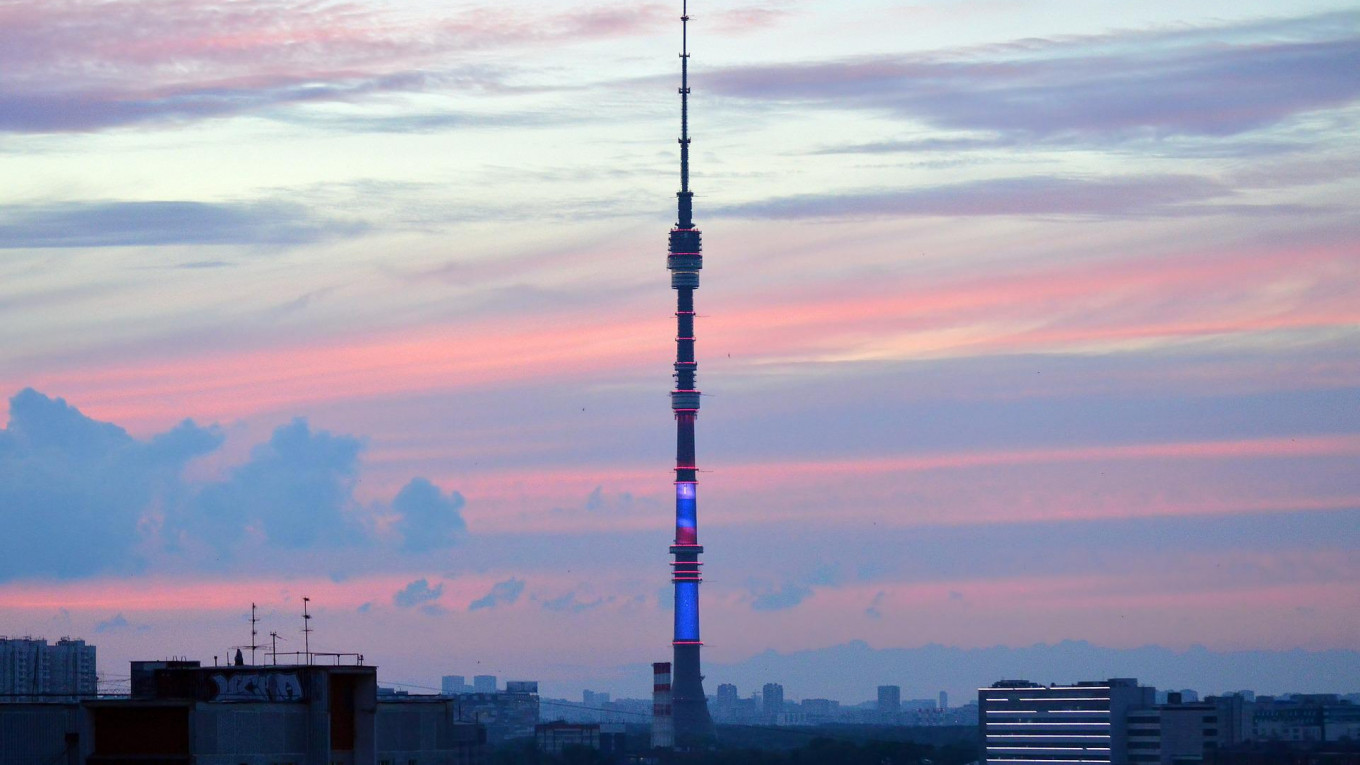Over the past few years, it has become enormously difficult to navigate the minefield that is Russia’s media censorship. This week captures the problem well: a primetime TV network broadcast blurred images of beastiality, suffering no legal consequences, while yet another Russian Internet user, this time in St. Petersburg, faces criminal investigation for reposting a meme.
On October 24, the NTV television program “Show and Tell” aired an episode dedicated to a leaked sex tape allegedly showing actor Alexei Panin engaging in sexual acts with a dog. Panin denies that it’s him in the video, accusing NTV of trying to take his eight-year-old daughter from him. He promises a lawsuit.
While NTV might face civil charges from Panin about his reputation, the network appears to be in no legal danger, despite the fact that it aired blurred, but still undeniably hardcore, images of a man and woman engaging in sexual acts with a dog.
“I’m no fan of the argument ‘children could see this,’ but there’s no other way to say it here: they could have seen this, and been scarred for life,” opposition activist Alexei Navalny wrote on his blog, complaining that the country’s “morality warriors” don’t really care about the Russian media.
Meanwhile, in St. Petersburg, police investigators came to a man’s home to interrogate him about a picture he reposted on social media. The image was a satirical map of the Russian Federation and its neighbors, created by the artist Alexei Kudelin, better known as “Vasya Lozhkin,” that was outlawed as “extremist” by a court in Novosibirsk earlier this year.
The dangerous image features “Great Wonderful Russia” surrounded by a black and menacing periphery, where the country’s various neighbors are labeled with racial epithets.
Lozhkin first published the picture in 2010. He’s since deleted it from his LiveJournal page.
Lozhkin has described his artwork as something “not everyone could hang at home.” His satire often features disturbing images and gallows humor.
A Message from The Moscow Times:
Dear readers,
We are facing unprecedented challenges. Russia's Prosecutor General's Office has designated The Moscow Times as an "undesirable" organization, criminalizing our work and putting our staff at risk of prosecution. This follows our earlier unjust labeling as a "foreign agent."
These actions are direct attempts to silence independent journalism in Russia. The authorities claim our work "discredits the decisions of the Russian leadership." We see things differently: we strive to provide accurate, unbiased reporting on Russia.
We, the journalists of The Moscow Times, refuse to be silenced. But to continue our work, we need your help.
Your support, no matter how small, makes a world of difference. If you can, please support us monthly starting from just $2. It's quick to set up, and every contribution makes a significant impact.
By supporting The Moscow Times, you're defending open, independent journalism in the face of repression. Thank you for standing with us.
Remind me later.






